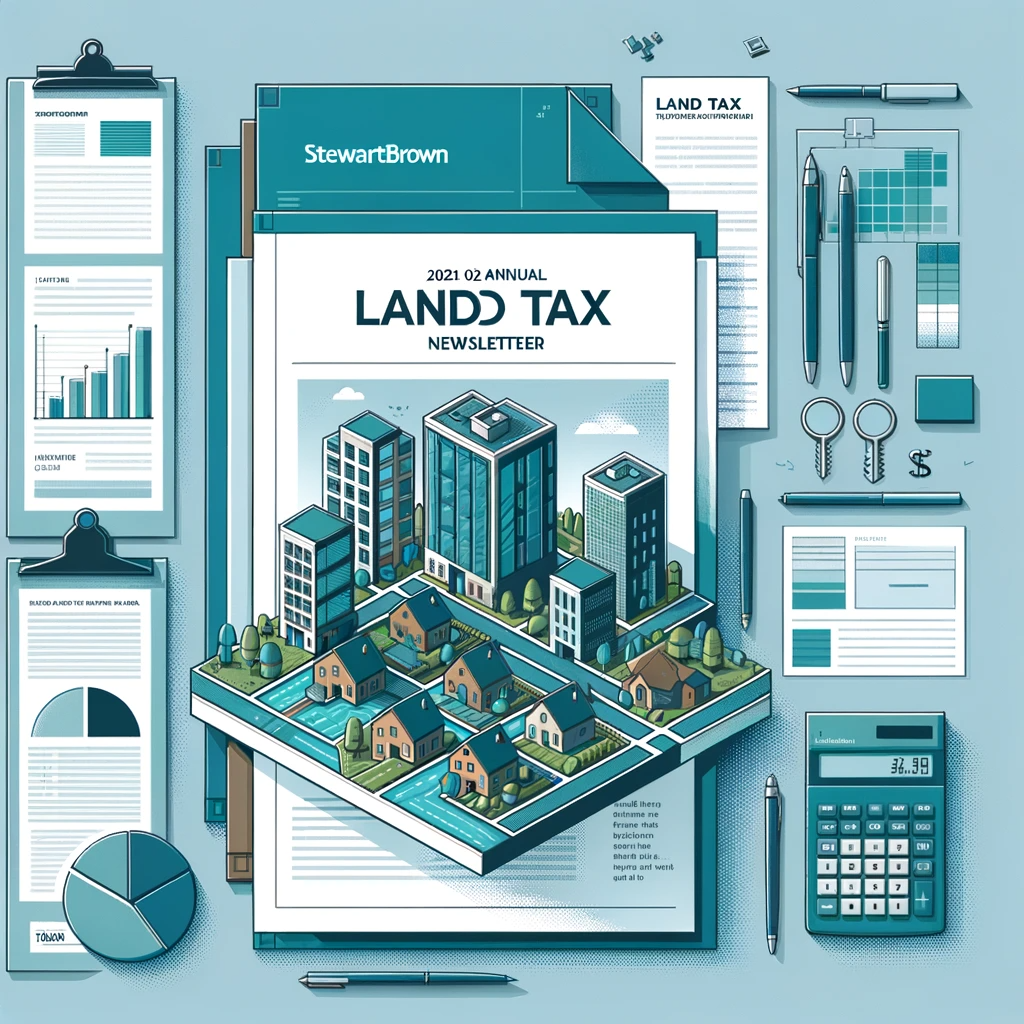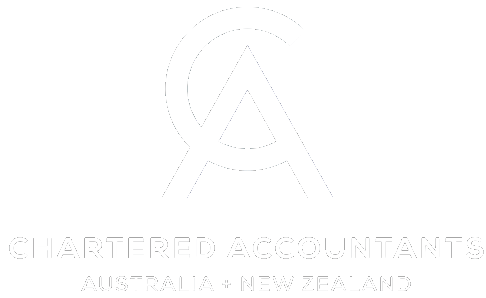
Welcome to our October 2021 special edition of the StewartBrown newsletter. Some important announcements have recently been made concerning the COVID-19 support payments and these are summarised for you below.
PHASING OUT OF JOBSAVER & MICRO-BUSINESS GRANT
New applications for the JobSaver payment & the Micro Business Grant will close on 18 October 2021.
The NSW Government has announced the phasing out of the JobSaver payment and Micro-business Grant as vaccination rates in NSW reach the 70% and 80% targets allowing government restrictions to be eased. These changes are set out below.
At 70% Double Vaccination Rate (16 years and older):

Welcome to our September 2021 edition of the StewartBrown newsletter. We hope to keep you informed of the important tax developments and issues affecting businesses in Australia today and throughout the year ahead.
CASUAL EMPLOYMENT LAW CHANGES EFFECTIVE 27 SEPTEMBER 2021
According to the Fair Work Ombudsman (“FWO”), Australian businesses with long-term casual staff could soon face fines in excess of $66,000 if they fail to offer those staff members permanent positions from 27 September 2021. From that date, employers will need to begin contacting casual staff, employed for at least 12 months, with a written offer to convert them to permanent employment.
The requirement comes after reforms to the Fair Work Act were passed in March, 2021 giving casual employees the right to convert to permanent employment after 12 months of employment, if they have had a regular pattern of hours on an ongoing basis over the past six months.

This special edition of our newsletter is to remind you of your employer obligations for year ended 30 June 2021, as well as to provide an update on key changes from 1 July 2021 onwards. Please contact your StewartBrown Manager or Partner should you need any assistance with any of the matters mentioned in the newsletter.
Click here to view or download a copy of our newsletter.

For the information of clients we enclose this checklist which you may find helpful in planning your year-end tax strategies. Careful planning (and in many cases timing) is even more important this year. Please contact your StewartBrown Manager or Partner should you need any assistance with understanding or applying the below.
Here’s a quick summary of what you need to consider for yourself and your business before the end of the financial year.
Company tax rate to reduce from 26% to 25% on 1 July 2021 (Base rate entities only).
Improved and expanded asset write-off incentives.
Superannuation Guarantee charge to increase from 9.5% to 10% on 1 July 2021.
Singe Touch Payroll (“STP”) now compulsory for all employers. Employers need to ensure their systems are ready and compliant to report using STP. Contact your StewartBrown Manager or Partner for assistance with this if necessary.
Trustees of discretionary trusts. You are required to document your annual distribution decision before 30 June.
Personal tax rates.
Superannuation. Changes to some age based tests and concessional and non-concessional contribution cap limits. Ensure minimum pension amounts have been withdrawn before 30 June.
Loss carry back measures. Companies can now carry-back losses into prior years.
Small business concessions for medium businesses. From 1 July 2020 eligibility conditions for some tax concessions have been relaxed.
Click here to download a PDF copy of the StewartBrown 2021 Year End Tax Planning Checklist.

FRINGE BENEFITS TAX ("FBT")
If you or your business have historically been using AUSkey to access Government portal and websites, you will need to make changes before March 2020 as Auskey is being decommissioned. The new replacement service is called myGovID. It will continue to be a secure login that identifies an individual operating on behalf of a business when using Government online services.
The ATO is managing the new myGovID credential exclusively on behalf of Government after being chosen as the Commonwealth's identity provider earlier last year.

Welcome to the special Land Tax edition of our client newsletter for 2021 where we hope to keep you informed of the important Land Tax compliance issues affecting owners of land in Australia. You may recall that Land Tax is a State tax and different rules apply in each State. In this newsletter we have summarised the position in NSW.
Click here to download a copy of StewartBrown's February 2021 Land Tax edition newsletter.
If in any doubt about your particular Land Tax circumstances, please contact your StewartBrown Manager or Partner.

This special edition of our newsletter is to remind you of your 2020 financial year employer obligations and provide you with an update on employment matters:-
Single Touch Payroll ("STP")
Director's Personal Liability
Payroll Obligations - Lodgement Deadlines
Taxable Payments Reporting
Reportable Employer Superannuation Contributions
Superannuation Choice
Superstream
Superannuation Contributions

WELCOME
Welcome to our special edition of the StewartBrown newsletter where we keep you informed and updated with the latest tax and Government assistance package developments as they arise. This newsletter outlines the JobKeeper package from the employee’s perspective.
JOBKEEPER OVERVIEW
The JobKeeper payment supports businesses significantly affected by coronavirus (COVID-19) by helping with the costs of their employees’ wages, so more Australians can retain their jobs and continue to earn an income.
If you are an employee your employer will notify you if they intend to claim the JobKeeper fortnightly payment of $1,500 on your behalf. You will not be paid the JobKeeper payment by the ATO. The payment comes from your employer who is later reimbursed by the ATO. Tax will be withheld from the payment so you may receive less than $1,500 in your bank account.

WELCOME
Welcome to our special edition of the StewartBrown newsletter where we keep you informed and updated with the latest tax and Government assistance package developments as they arise.
This newsletter outlines the JobKeeper package from the employer’s perspective. A separate newsletter will follow detailing how these payments are viewed from an employee’s perspective.
JOBKEEPER OVERVIEW
JobKeeper is a $130 billion initiative of the Federal Government designed to support businesses significantly affected by the coronavirus. Its objective is to subsidise the employer’s wages cost to enable them to retain their employees. The scheme runs for the six month period 30 March 2020 - 27 September 2020.

The Federal Government recently announced its third raft of measures aimed at stimulating the economy and providing support to businesses, individuals and families. The States and Territories have also announced strategies for each of their various jurisdictions.
Click here to download a copy of our newsletter which contains a summary of the economic measures announced as of 30th March 2020. If you have a specific question about any of these points please contact your StewartBrown Manager or Partner to discuss.

The FBT year ends on 31 March 2020 and each employer is required to calculate their liability for FBT. Where a liability for FBT exists, an annual return is required to be lodged and any tax paid by 21 May 2020. However, if the return is lodged electronically by a Tax Agent the due date of lodgement is 25 June 2020 while the payment due date is 28 May 2020.
2019 FBT YEAR – RATES AND THRESHOLDS
2020 rates 2019 rates
FBT rate 47% 47%
Gross up rates-Type 1 2.0802 2.0802
Gross up rates--Type 2 1.8868 1.8868
Interest rate on loan fringe benefits 5.37% 5.20%
Car parking benefit threshold $8.95/day $8.83/day
2020 Living Away from Home Allowances:
ATO guidelines (excerpt) for reasonable food and drink-within Australia
$Per week
One adult 269
Two adults 404
Three adults 539
One adult and one child 337
Two adults and one child 472
VEHICLES
We remind you that where motor vehicles are provided to employees or their associates for their private use, odometer readings must be recorded as at 31 March 2020 for each motor vehicle.
Guidelines for exempt vehicle benefits (i.e. commercial vehicles)
The ATO have recently issued further guidance to employers who provide work vehicles to employees and those vehicles are typically considered commercial in nature (e.g. panel vans, utility or other commercial vehicles not designed principally to carry passengers).
Many employers incorrectly believe that because these vehicles are “commercial” in nature there is no FBT liability to consider. This is not the case. Even if a vehicle is on the ATO list of approved commercial vehicles, an FBT liability may still arise.
The guidelines state that private use of these vehicles must be restricted to travel between home and work (and back) and that any diversion in travel must add no more than 2km’s to the journey (e.g. picking up kids from school etc). In addition, the vehicle must not travel more than 1,000kms per year (previously 750km) in private usage (e.g. holidays) and no single journey for private purposes can exceed 200km’s. If the vehicles private usage exceeds these guidelines an FBT liability may arise.
If you have provided commercial vehicles to employees we strongly encourage you to speak with us concerning your potential FBT liability for these vehicles.
If you have any queries in respect of your potential FBT liability or would like StewartBrown to perform a FBT ‘health check’ on your business, please contact one of the StewartBrown Managers or Partners to discuss.

Welcome to our special update edition of the StewartBrown newsletter where we keep you updated with the latest tax and Government assistance packages being made available in response to the COVID-19 pandemic.
ASSISTANCE TO COPE WITH THE EFFECTS OF THE CORONAVIRUS (COVID-19)
Federal Government stimulus package-overview
An additional $66b in COVID-19 economic support has now been pledged by the Federal Government in addition to the previous $17.6b stimulus package.
Importantly, Not-for-Profit entities (“NFP’s”), including charities, with aggregated annual turnover under $50 million and that employ workers will now also be eligible. Previously they were not included in the measures. This will support employment activities at a time where NFP’s are facing increasing demand for services.
StewartBrown
ABN: 63 271 338 023
Level 2, Tower 1,
495 Victoria Avenue
Chatswood, NSW, 2067
Stewart Brown Advisory Pty Ltd
ABN: 19 143 011 750
AFSL: 355134
Level 2, Tower 1,
495 Victoria Avenue
Chatswood, NSW, 2067

StewartBrown
ABN: 63 271 338 023
Level 2, Tower 1,
495 Victoria Avenue
Chatswood, NSW, 2067
Stewart Brown Advisory Pty Ltd
ABN: 19 143 011 750
AFSL: 355134
Level 2, Tower 1,
495 Victoria Avenue
Chatswood, NSW, 2067









